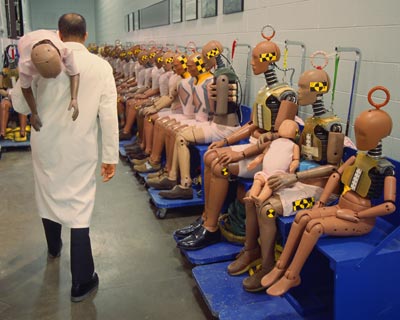After a steep decline in manufacturing, the U.S, has an opportunity to drive the future of the sector. But there’s a catch: You and I may not be necessary. The rapid growth of robotics in America may largely close factories to human hands. We’ll be richer in the aggregate, but those riches will not be distributed very much to workers. Good in the long run but not so much now. From Amar Toor at Verge:
“Some see automated manufacturing as a potential boon for the US economy, a way to lure companies back to American soil with the promise of higher productivity and lower labor costs. But others fear that the push could displace the last vestiges of middle-class American manufacturing workers at a time of high unemployment and soaring inequality.
‘The pace and scale of this encroachment into human skills is relatively recent and has profound economic implications,’ MIT economists Erik Brynjolfsson and Andrew McAfee wrote in their 2011 book Race Against the Machine. In the book, the authors argue that technology has destroyed more American jobs at a faster pace than it’s created new ones, leading to higher unemployment and stagnant median incomes despite higher productivity levels. Although they conclude on an optimistic note, arguing that technological change will yield benefits in the long run, Brynjolfsson and McAfee say its short-term effects could be devastating for American workers.”
Tags: Amar Toor, Andrew McAfee, Erik Brynjolfsson

